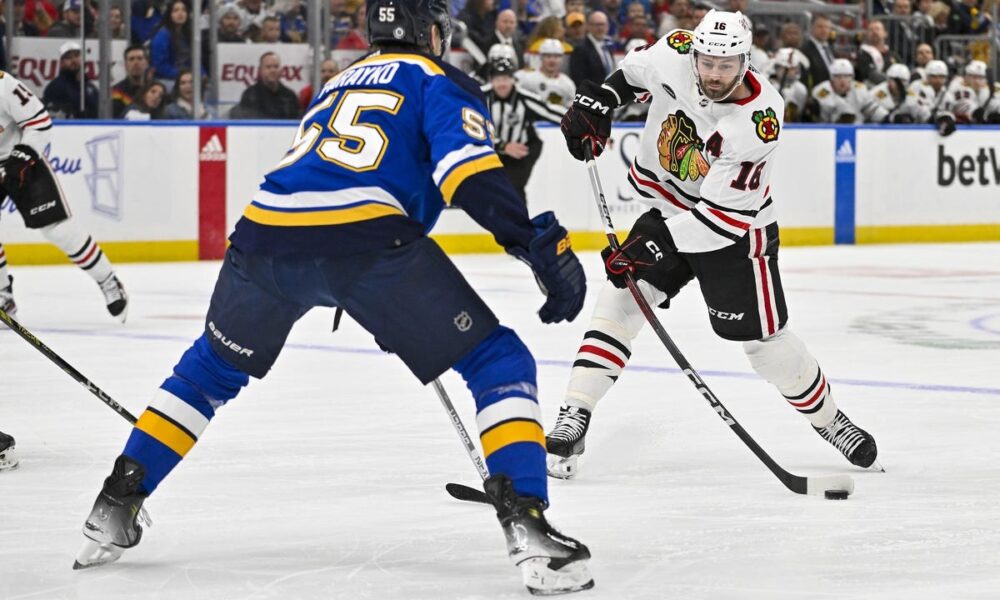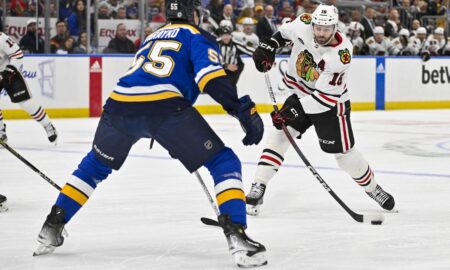Featured Articles
-

 33NHL Game Previews, Picks & Predictions
33NHL Game Previews, Picks & PredictionsKraken vs Wild Prediction, Pick, Preview & Betting Odds for 4/18/24
-

 32MLB Game Previews, Picks & Predictions
32MLB Game Previews, Picks & PredictionsDiamondbacks vs Giants Prediction, Pick, Preview & Betting Odds – MLB 4/18/24
-

 55MLB Game Previews, Picks & Predictions
55MLB Game Previews, Picks & PredictionsMarlins vs Cubs Prediction, Pick, Preview & Betting Odds – MLB 4/18/24
What’s Hot
-

 40NHL Game Previews, Picks & Predictions
40NHL Game Previews, Picks & PredictionsDucks vs Golden Knights Prediction, Pick, Preview & Betting Odds for 4/18/24
In this NHL regular season prediction between the Ducks and Golden Knights, see who...
-

 52MLB Game Previews, Picks & Predictions
52MLB Game Previews, Picks & PredictionsGuardians vs Red Sox Prediction, Pick, Preview & Betting Odds – MLB 4/18/24
Check out our free Guardians vs Red Sox pick and preview for this MLB...
-

 39MLB Game Previews, Picks & Predictions
39MLB Game Previews, Picks & PredictionsRangers vs Tigers Prediction, Pick, Preview & Betting Odds – MLB 4/18/24
Check out our free Rangers vs Tigers pick and preview for this MLB matchup...
Latest Knup Sports Show
Latest Posts at KnupSports.com
-

 11NHL Articles, Opinions & Blogs
11NHL Articles, Opinions & Blogs5 Teams and Players To Watch In The 2024 NHL Playoffs
The National Hockey League playoffs are here, and there is reason to believe that this year’s festivities will be as exciting as...
-

 17MLB Game Previews, Picks & Predictions
17MLB Game Previews, Picks & PredictionsDiamondbacks vs Giants Prediction, Pick, Preview & Betting Odds – MLB 4/19/24
Check out our free Diamondbacks vs Giants pick and preview for this MLB matchup at Oracle Park. See who we like to...
-
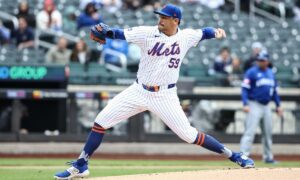
 22MLB Game Previews, Picks & Predictions
22MLB Game Previews, Picks & PredictionsMets vs Dodgers Prediction, Pick, Preview & Betting Odds – MLB 4/19/24
Check out our free Mets vs Dodgers pick and preview for this MLB matchup at Dodger Stadium. See who we like to...
-

 34MLB Game Previews, Picks & Predictions
34MLB Game Previews, Picks & PredictionsMariners vs Rockies Prediction, Pick, Preview & Betting Odds – MLB 4/19/24
Check out our free Mariners vs Rockies pick and preview for this MLB matchup at Coors Field. See who we like to...
-

 19MLB Game Previews, Picks & Predictions
19MLB Game Previews, Picks & PredictionsBrewers vs Cardinals Prediction, Pick, Preview & Betting Odds – MLB 4/19/24
Check out our free Brewers vs Cardinals pick and preview for this MLB matchup at Busch Stadium. See who we like to...
-

 25MLB Game Previews, Picks & Predictions
25MLB Game Previews, Picks & PredictionsTigers vs Twins Prediction, Pick, Preview & Betting Odds – MLB 4/19/24
Check out our free Tigers vs Twins pick and preview for this MLB matchup at Target Field. See who we like to...
-

 24MLB Game Previews, Picks & Predictions
24MLB Game Previews, Picks & PredictionsOrioles vs Royals Prediction, Pick, Preview & Betting Odds – MLB 4/19/24
Check out our free Orioles vs Royals pick and preview for this MLB matchup at Kauffman Stadium. See who we like to...
-

 16MLB Game Previews, Picks & Predictions
16MLB Game Previews, Picks & PredictionsAthletics vs Guardians Prediction, Pick, Preview & Betting Odds – MLB 4/19/24
Check out our free Athletics vs Guardians pick and preview for this MLB matchup at Progressive Field. See who we like to...
-

 29MLB Game Previews, Picks & Predictions
29MLB Game Previews, Picks & PredictionsRays vs Yankees Prediction, Pick, Preview & Betting Odds – MLB 4/19/24
Check out our free Rays vs Yankees pick and preview for this MLB matchup at Yankee Stadium. See who we like to...
-
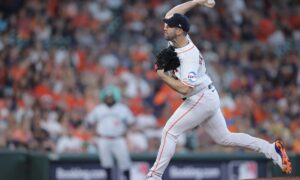
 33MLB Game Previews, Picks & Predictions
33MLB Game Previews, Picks & PredictionsAstros vs Nationals Prediction, Pick, Preview & Betting Odds – MLB 4/19/24
Check out our free Astros vs Nationals pick and preview for this MLB matchup at Nationals Park. See who we like to...
-

 31MLB Game Previews, Picks & Predictions
31MLB Game Previews, Picks & PredictionsRed Sox vs Pirates Prediction, Pick, Preview & Betting Odds – MLB 4/19/24
Check out our free Red Sox vs Pirates pick and preview for this MLB matchup at PNC Park. See who we like...
-

 35MLB Game Previews, Picks & Predictions
35MLB Game Previews, Picks & PredictionsWhite Sox vs Phillies Prediction, Pick, Preview & Betting Odds – MLB 4/19/24
Check out our free White Sox vs Phillies pick and preview for this MLB matchup at Citizens Bank Park. See who we...
-
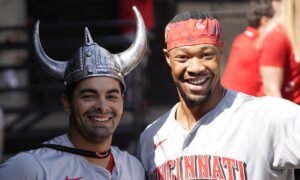
 34MLB Game Previews, Picks & Predictions
34MLB Game Previews, Picks & PredictionsAngels vs Reds Prediction, Pick, Preview & Betting Odds – MLB 4/19/24
Check out our free Angels vs Reds pick and preview for this MLB matchup at Great American Ball Park. See who we...
-

 41MLB Game Previews, Picks & Predictions
41MLB Game Previews, Picks & PredictionsMarlins vs Cubs Prediction, Pick, Preview & Betting Odds – MLB 4/19/24
Check out our free Marlins vs Cubs pick and preview for this MLB matchup at Wrigley Field. See who we like to...
-
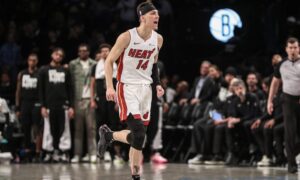
 54NBA Game Previews, Picks & Predictions
54NBA Game Previews, Picks & PredictionsBulls vs Heat Prediction, Pick, Preview & Betting Odds for 4/19/24
Read on to get betting odds and analysis in our Bulls vs Heat prediction and preview and see who we think will...
-
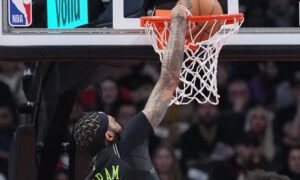
 47NBA Game Previews, Picks & Predictions
47NBA Game Previews, Picks & PredictionsKings vs Pelicans Prediction, Pick, Preview & Betting Odds for 4/19/24
Keep reading to see our Kings vs Pelicans NBA prediction In this article we will outline who will come away with the...
-

 40NHL Game Previews, Picks & Predictions
40NHL Game Previews, Picks & PredictionsDucks vs Golden Knights Prediction, Pick, Preview & Betting Odds for 4/18/24
In this NHL regular season prediction between the Ducks and Golden Knights, see who like to win the game and cover the...
-

 41NHL Game Previews, Picks & Predictions
41NHL Game Previews, Picks & PredictionsSharks vs Flames Prediction, Pick, Preview & Betting Odds for 4/18/24
In this NHL regular season prediction between the Sharks and Flames, see who like to win the game and cover the puck...
-

 37NHL Game Previews, Picks & Predictions
37NHL Game Previews, Picks & PredictionsCanucks vs Jets Prediction, Pick, Preview & Betting Odds for 4/18/24
Check out our free Canucks vs Jets prediction for this NHL matchup in Winnipeg. See who we like to win and cover...
-

 33NHL Game Previews, Picks & Predictions
33NHL Game Previews, Picks & PredictionsKraken vs Wild Prediction, Pick, Preview & Betting Odds for 4/18/24
In this NHL regular season prediction between the Kraken and Wild, see who like to win the game and cover the puck...

